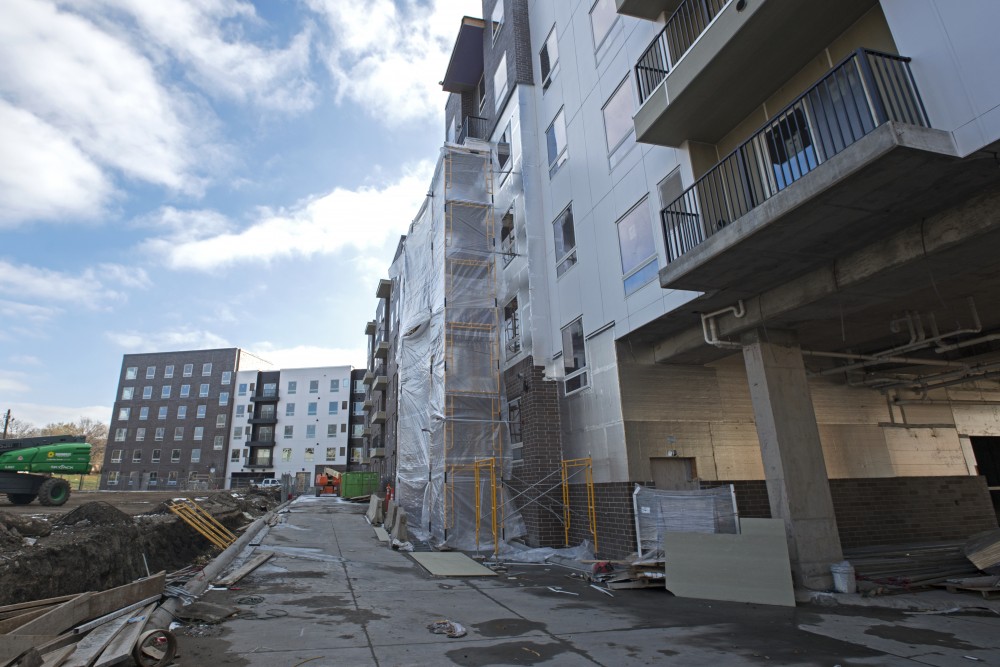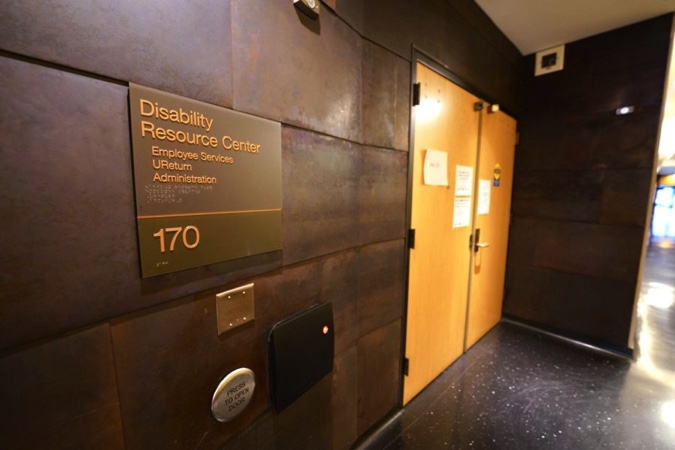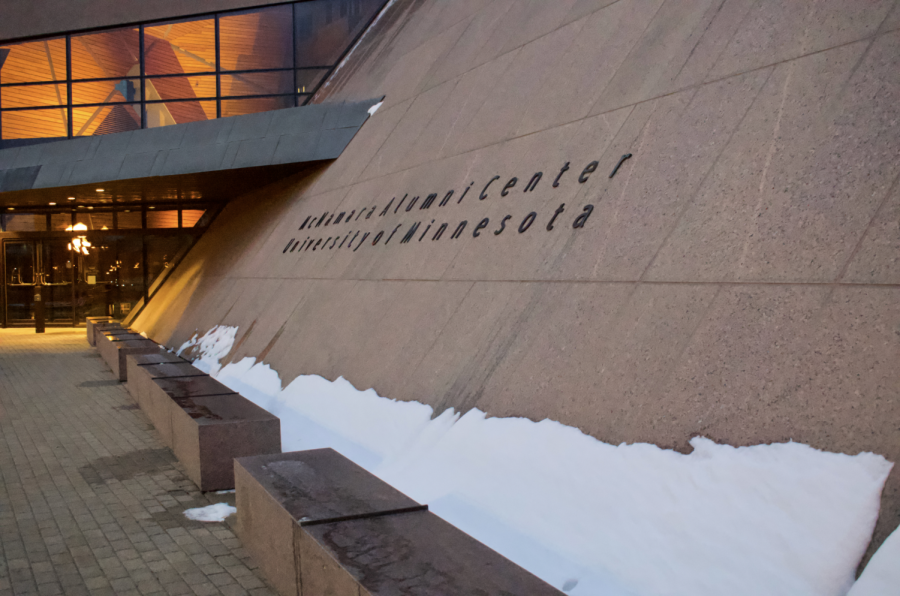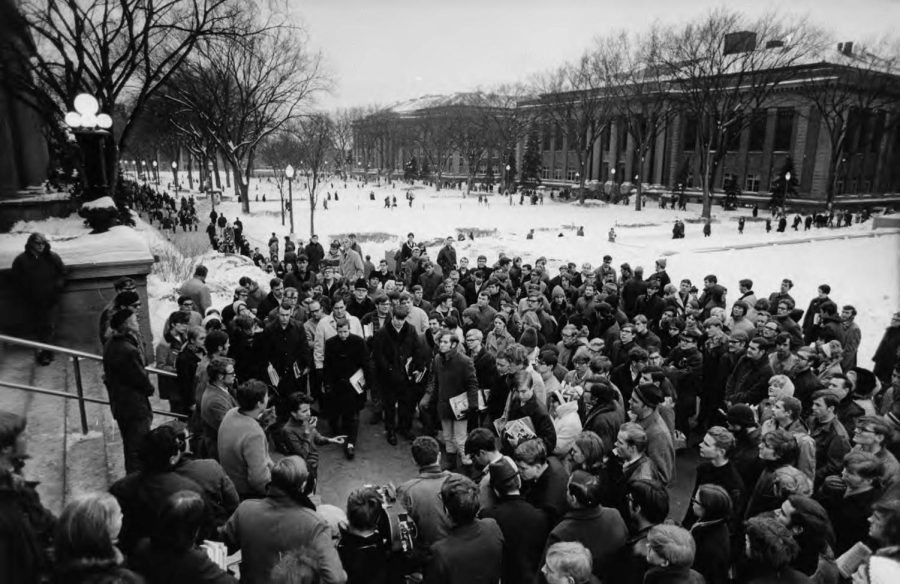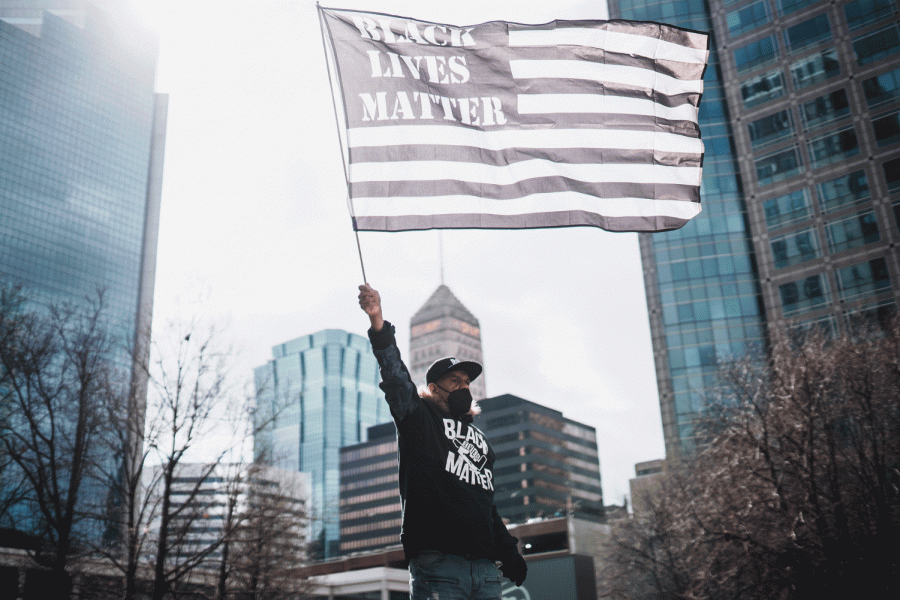Investigations of a University-area apartment show developers of the building repeatedly broke deadlines and forced students to keep leases for apartments that shouldn’t have been approved to take in any residents at all.
A report from a private inspection conducted Nov. 1 at the Prime Place Apartments building in Prospect Park found construction and fire code violations throughout the complex. About a month earlier on Oct. 2, the City of Minneapolis granted a temporary certificate of occupancy — finding the building complied with state and city building codes — which allowed residents to move into its completed portions.
Prime Place rushed to move tenants in on Sept. 30, before the certificate of occupancy was officially granted.
The report showed the occupied portion of the apartment, where more than 100 students are living, has a host of problems that violate city code and raise serious fire-safety concerns.

In addition, half of the apartment remains an unsecured construction site several months after move-in day.
“You can see the complete lack of care and the lack of professionalism in every inch of that building,” said Bernard McClellan, former Prime Place construction site supervisor.
Students say the living conditions have impacted their physical, mental and academic well-being. The litany of complaints against the building has attracted the attention of local officials and Minneapolis Building and Construction Trades Council, a construction advocacy group.
The Minnesota Daily reached out to the City of Minneapolis on Nov. 7 for a statement on the inspections, but the city, citing lack of time, was unable to respond before publication.
Prime Place declined multiple requests for comment.
Inspection reveals “serious” breaches of fire safety
Poorly constructed fire walls, inoperable smoke detectors and a variety of safety issues were found in the Nov. 1 inspection.
In addition to the fire safety violations, “the construction at 117 27th Ave. SE appears to be not very well performed or supervised,” the report said.
Greg Johnson, regulatory consultant with Johnson & Associates Consulting Services and former City of St. Paul building inspector, wrote the report. Johnson was one of two private inspectors hired by the Minneapolis Building and Construction Trades Council to investigate safety concerns.
He found in the occupied portion of the building “numerous breaches of fire partition and corridor ceiling integrity.” In the event of a fire, these features are meant to limit and slow the spread of flames and smoke.
The Minnesota Building Code specifically addresses fire safety and is necessary for officials to sign off on a certificate of occupancy, Johnson said, but the building fails these fire safety codes.
Johnson said he was able to freely enter the construction area after hours, which is a safety and theft concern.
Additionally, an industrial space heater with open flames was left unattended in the unoccupied portion of the building after business hours. The report said this poses a fire risk and noted no fire extinguishers in the active construction site.
Sources sent photos that allegedly showed black mold at the site to the Minnesota Daily last month, but an inspection by Independent Environmental Health Consultant Mac Pearce found no mold in the building.
“In conclusion, these results do not point to a mold problem,” his report said. “This was only an initial screening, with few select areas tested. No method of mold testing … is perfect, and it is possible that other materials and methods might unearth a mold problem that I didn’t detect.”
In other cities where Prime Place built, lists of similar issues appeared.
Shoddy construction and unclear move-in procedures plagued Prime Place student residents near University of Nebraska-Lincoln and Oklahoma State University.
Tenants who moved into a new Prime Place complex in Lincoln found unfinished units, clogged drains and dust and debris, according to a Lincoln Journal Star article dated Aug. 25, 2015.
Inspectors found seven minor building code violations in the complex, according to the article.
Jennifer Rooney, now a University of Nebraska-Lincoln alumna, recalled moving into a recently finished Prime Place apartment to find her unit unexpectedly unkempt with evidence of recent construction.
“It was honestly a mess,” she said.
In 2015, The O’Colly, Oklahoma State University’s campus newspaper, reported that newly constructed Prime Place student apartments in Stillwater, Oklahoma, experienced severe basement flooding.
Residents face stress, health problems at Prime Place
Some University of Minnesota students contacted University Student Legal Services with hopes to move out of the building because of medical conditions exacerbated by poor air quality, said Bill Dane, staff attorney at USLS.
Dane said so far, Prime Place has denied resident requests to move out based on health concerns.
“That’s completely contrary to our understanding of the law,” Dane said. “If there are physical impediments that make it impossible for you to live there, then obviously, you can’t live there.”
Kathleen Crawford, former Prime Place resident and student, is planning to sue Prime Place because she said the living conditions impacted her mental and academic health.
Despite making multiple maintenance requests, Crawford said she could not stop the noise from the air system in her bedroom, which reached a 66 decibel volume and equates to the noise of street traffic.
“First, I caught a cold, then the lack of sleep wore me down mentally. I ended up getting behind in school and the doctor said it has caused depression,” Crawford said. “It was a blow to see all my hard work at jeopardy.”
Crawford moved out of her apartment after two weeks, sending an email to Blake Franklin, the building’s general manager, citing her doctor’s orders and the unit’s effect on her health.
Prime Place denied Crawford’s request to terminate the lease. Franklin responded, saying her request was denied based on a decision from the company’s corporate office.
Other residents in the private Facebook group complained over the apartment’s air quality, with some citing health concerns.
Hannah McMahon, University student and Prime Place resident, noticed respiratory issues 10 days after moving in. She said a Nov. 3 doctor visit showed these could be due to her living situation.
A flawed construction process
Even before construction began on Prime Place, the company faced setbacks and difficulties.
Bernard McClellan worked as general superintendent for the construction site at Prime Place until Aug. 24, 2016, when he formally resigned over construction flaws and management concerns.
He said the setbacks caused Prime Place to push back the move-in date and rush construction.
In an email to Kyle Baker, city of Minneapolis building construction inspector for the project, McClellan announced his departure and said “[The contractor and I] have reached an agreement to part ways that I knew was imminent. The unfortunate part is the shortcuts they are hoping you won’t catch.”
The contractors lacked the experience necessary to complete the job and do not understand Minneapolis building code, McClellan said.
Due to Prime Place applying late for a wrecking permit from the City, demolition of the previous site began in February 2016, almost 60 days after its Jan. 2 target, McClellan said.
“That time frame, in the course of a year and a half of building the project, could have been recoverable … by making smarter decisions,” he said.
Despite his insistence that builders would not meet the targeted resident occupancy date in early September, Prime Place management refused to advertise an adjusted move-in date early in the project, McClellan said.
Concerns mount at Prime Place
Dan McConnell, business manager of the Minneapolis Building and Construction Trades Council, found out about the concerns regarding the construction process and notified Patrick Higgins, building official for the City of Minneapolis and Ward 2 Minneapolis City Council Member Cam Gordon on Sept. 14.
McConnell said in a statement the organization arranged for independent mold and building code inspections after receiving multiple “disturbing reports” of sub-standard work, complaints from former project employees and past Minnesota Daily coverage.
In response to the mounting complaints from area residents, but before the Nov. 1 inspections, Gordon went on a private inspection of the building with McConnell.
“[I’ve heard] more complaints about this project than any other,” Gordon said. “And I’ve been here 12 years.”
Gordon said despite seeing some finished rooms on the tour, he is still worried by the state of the construction.
“It was clear that they were rushing and skimping,” he said.
Officials respond to safety concerns
As a result of the report, the Minneapolis Building and Construction Trades Council is calling for stronger vetting of developers and contractors when it comes to building inspections, fire inspections, certificates of occupancy and issuance of rental licenses.
“Work at the Prime Place Apartments, LLC development is subpar and could pose a safety risk for current and future residents, many of whom are University of Minnesota students,” the Council said in its statement to the Minnesota Daily.
The roughly 15,000-member council advocates for unionized construction workers in Minneapolis and surrounding areas.
“How we ever got to this stage is very troubling,” McConnell said in the statement. “We were shocked when we learned that tenants were allowed to move in while the building is in its current state.”
McConnell’s statement continued, stating that Prime Place follows a trend of out of state-of-state contractors performing unacceptable work, calling out processes that let them build in the state.
“The safety of Minneapolis residents is in question here,” McConnell said in the statement. “There is no time to sit around and wait for health issues to arise or an accident to happen. We must act now.”


